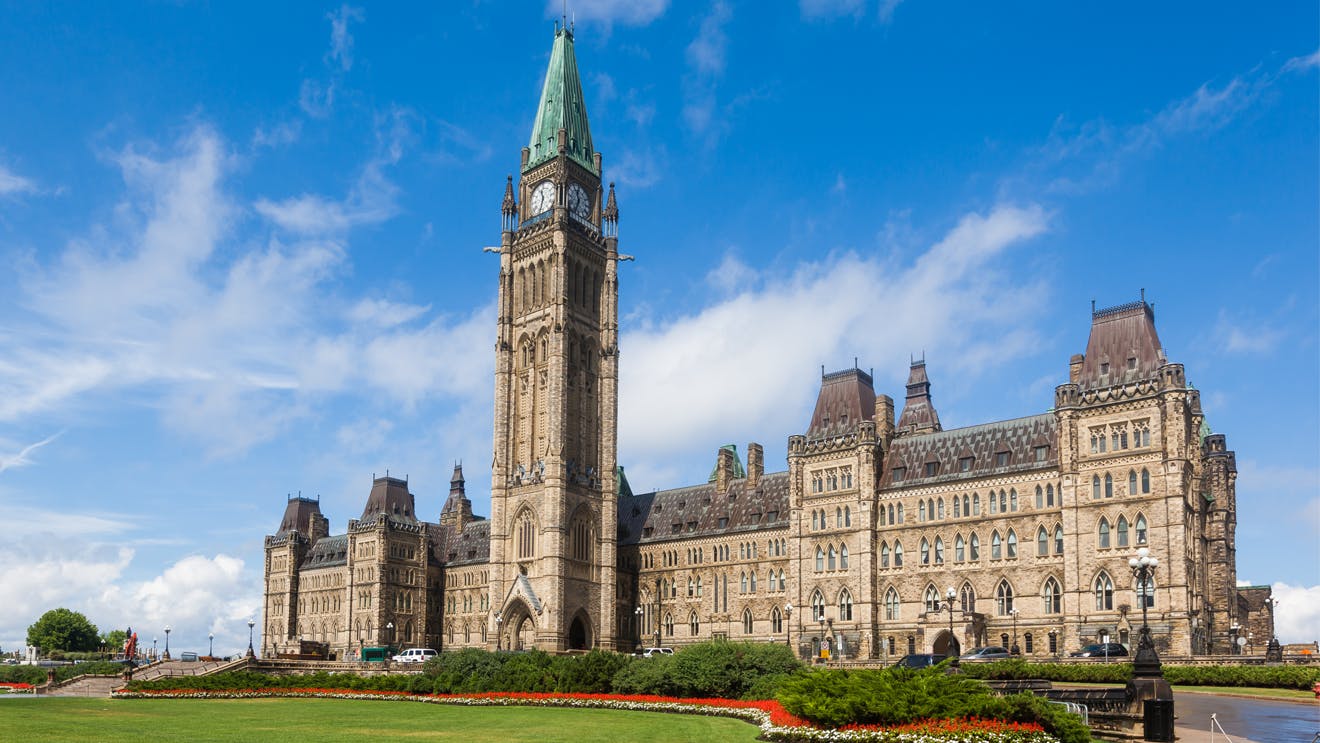November 14, 2023
The Honourable Chrystia Freeland, P.C., M.P.
Deputy Prime Minister and Minister of Finance
Dear Deputy Prime Minister Freeland,
On behalf of the Calgary Chamber of Commerce and our member businesses, I am writing to provide you with our formal submission to the Department of Finance Canada regarding Budget 2024.
The Calgary Chamber remains encouraged by the government’s commitment to tackling Canada’s most pressing economic challenges. Efforts to address housing affordability through the Housing Accelerator Fund, targeted support to help businesses mitigate the impacts of rising costs and strategic investments in emerging economic sectors such as clean technology have created opportunities for short and long-term economic success. However, capitalizing on these opportunities will require continued focus, bold ideas and strong collaboration between governments and the private sector to ensure Canada’s continued prosperity as we face an uncertain economic and geopolitical future.
The most recent data released as part of the Canadian Survey on Business Conditions shows that while there are signs of improvement for businesses, many continue to face persistent obstacles to their growth. In the third quarter of 2023, 57 per cent of Canadian businesses still see inflation as a major obstacle to their growth. Moreover, 45 per cent of businesses remain concerned over the rising costs of inputs, with an additional 43 per cent of businesses identifying interest rates and debt costs as a major obstacle moving forward. We also note that Canada has a productivity problem, with a recent report from Dais, a think-tank associated with the Toronto Metropolitan University’s citing fewer than four per cent of Canadian businesses adopted any form of Artificial Intelligence, which can boost productivity. Our per-capita productivity ranks 29 of 38 OECD countries – a factor that can be tied to a lack of technology adoption as well as cumbersome regulatory processes. Taken together, it is evident Budget 2024 must provide additional, targeted support that helps businesses mitigate and overcome these challenges.
After consultation with our members, we are pleased to provide the attached submission to Finance Canada to inform deliberations over investment, regulatory and legislative priorities for Budget 2024. Expanded upon in greater detail throughout the attached, we encourage the government to:
- Introduce measures that encourage fiscal prudence, address rising costs and reduce red tape. Lowering Canada’s debt-to-GDP ratio, as well as initiatives that reduce burdensome government processes and support businesses in addressing rising costs are crucial to sustained economic growth.
- Address Canada’s ongoing labour shortages, recognizing the importance of immigration as a long-term solution to persistent talent gaps.
- Establish policies that support technology adoption and digital growth across sectors. This includes a commitment to working with Canada’s early-stage companies to ensure they have the support required to grow and succeed and providing businesses with incentives to adopt new technologies to boost productivity.
- Immediately implement Carbon Contracts for Difference (CCfD), providing clarity on proposed investment tax credits, and collaborating with other orders of government to establish a national GHG-offset market.
- Advance the National Supply Chain strategy to guide strategic infrastructure investments needed to support supply chain resilience. This will also require the development of an integrated National Industrial Strategy to further reduce internal trade barriers and enhance access to foreign markets.
Budget 2023 has already cleared a path to long-term business success and economic growth; implementing the above recommendations will ensure this path remains clear for the foreseeable future.
Thank you in advance for your consideration. We look forward to continuing to work with you and your team to accelerate Canada’s economic growth.
Sincerely,
Deborah Yedlin
President & CEO
Calgary Chamber of Commerce
Recommendations for inclusion in Budget 2024
Budget 2023 advanced several key investments that are critical to supporting Canada’s business community. Moreover, we are encouraged by the government's continued efforts to address Canadians’ and businesses’ most pressing needs, including recent funding commitments that target housing affordability, ensuring workers can seize opportunities in the green economy, and support for the development of emerging economic sectors. These investments – amongst others – are critical to sustained economic growth and long-term business success.
Building on these foundations, the Calgary Chamber continues to advocate for initiatives that further support the business community, as detailed below.
Support fiscal prudence, address rising costs and reduce red tape
Businesses remain hesitant over their future economic outlook as cost-related challenges remain their most pervasive near-term obstacle to success. To address these concerns and support businesses in mitigating their impacts, we encourage the government to:
- Commit to fiscal prudence and financial stability by taking action to reduce the federal deficit and pay down debt, with a focus on lowering Canada’s current debt-to-GDP ratio to less than 40 per cent. Importantly, demonstrate restraint on new government spending by prioritizing the dispersion of funding that has yet to be utilized or allocated over new investments.
- Ensure forthcoming regulations do not unequally disadvantage one region of Canada over another by setting clear and consistent regulatory targets that provide businesses with predictability.
- Ensure policies strike the appropriate balance between achieving their objectives and maintaining affordability for Canadians and businesses. Mitigate regional impacts of decarbonization policies through a technology-agnostic approach to emissions reduction, allowing markets to self-determine the most cost-effective technologies for achieving policy compliance.
- Re-draft the proposed Clean Electricity Regulations, working in partnership with provinces and territories to ensure the regulations can achieve the government’s broader climate goals with jeopardizing reliable and affordable electricity for Canadians. This includes a commitment to working with provinces and territories on the development of benefit agreements that protect their unique regional interests to the greatest extent possible without risking the long-term success of the Canadian economy.
- Support small and medium-sized businesses through the introduction of targeted affordability supports, working with Canadian SMEs to identify which incentives and programs would be best for mitigating the impact of rising costs.
Remain focused on positioning Canada as the destination of choice for world-class talent
According to the Q3 2023 Canadian Survey on Business Conditions, 30 per cent of Canadian businesses see labour shortages as an obstacle to their growth over the next quarter. With the long-term success of the Canadian economy contingent on businesses having access to the talent they require to grow, we encourage the government to:
- Implement changes to Canada’s temporary foreign worker’s program to support businesses in accessing talent, including increases to provincial nomination limits, extensions to the time workers can remain in Canada, and reducing the cost of a Labour Market Impact Assessment.
- Increase support for immigrant settlement agencies, including Calgary organizations such as the Centre for Newcomers and Immigrant Services Calgary, which are facing challenges to maintain service standards over uncertain funding.
- Approve the City of Calgary’s submission to the Housing Accelerator Fund, committing $380 million to support the development of 11,000 new homes across the housing spectrum.
- Provide funding to local businesses that support employers in creating work-integrated learning opportunities.
- Provide the City of Calgary with $14 million contribution towards the Community Mental Health and Addictions Strategy and $8 million towards the Community Safety Investment Framework, ensuring the City can continue to address issues of mental health and addictions.
Leverage technology and innovation as an economic accelerator
Canada’s technology and innovation ecosystem has the potential to supercharge the Canadian economy in the future. With the sector already contributing billions yearly to Canada’s GDP, the sector’s full potential can be realized through strategic government initiatives, including:
- Create a dedicated funding stream under the Canada Digital Adoption Program to support businesses in adopting innovative AI technologies. This funding should be business agnostic, incentivizing businesses of all sizes to harness AI for innovation and competitiveness.
- Establish a FPT table on digital policy focused on developing digital policies that support growth across economic sectors. This table should include relevant government departments, industry regulators, and private businesses to ensure the efficiency of the policies being contemplated.
- Create a dedicated funding stream under the Canada Digital Adoption Program to support businesses in adopting innovative AI technologies. This funding should be business agnostic, incentivizing businesses of all sizes to harness AI for innovation and competitiveness.
- Expand access to grants and funding opportunities that provide access to low-cost, non-dilutive capital, further supporting the growth of early-stage companies.
- Establish the Canadian Innovation Corporation in Calgary, recognizing Calgary’s position as the pre-eminent jurisdiction for innovation in clean tech, ag tech, fintech, and other emerging sectors of economic importance.
- Ensure Indigenous and rural communities have equal access to high-speed Internet through investments in rural broadband. Additionally, collaborate with the telecommunications sector to reach an agreement on a review of Canada’s spectrum policy, assess the potential to increase the number of spectrum licences, and determine whether “use-it-or-lose-it” conditions for spectrum licences deemed critical for delivering universal coverage are necessary.
- Work with venture capital firms and angel investors to identify and implement financial supports that de-risk investments in early-stage companies, supporting a co-invest model to encourage Canadian investors to support start-ups and early-stage ventures with confidence.
- Collaborate with other orders of government to establish “wet lab” spaces, providing opportunities for early-stage companies across industries to achieve proof of concepts and viable products within their ecosystems, ensuring these companies remain in Canada.
- Provide post-secondary institutions with funding and grants that support research and development programs in sectors of economic importance. Associated infrastructure necessary for research and development should be eligible for funding and grants.
- With the establishment of the NATO Defence Innovation Accelerator for the North Atlantic in Halifax, collaborate with the private sector to build out supportive research and development program hubs across Canada that leverage regional sectoral expertise in defence innovation, such as Calgary’s burgeoning aerospace sector.
Prioritize investments in emerging energy solutions and decarbonization
Alberta businesses are pioneering the development of sustainable energy products and decarbonization technologies. Regional advancements in hydrogen, renewables and critical minerals, alongside investments in decarbonization technologies such as Carbon Capture, Utilization and Storage (CCUS), Bitumen Beyond Combustion (BBC) and energy storage have primed Alberta businesses to be leaders in growing the country’s economy while meeting ambitious climate targets. To ensure Alberta businesses can effectively support the growth of a green Canadian economy, we encourage the Government to:
- Implement Carbon Contracts for Difference (CCfDs), which are critical to long-term stability of climate policy and de-risking investment in decarbonization projects.
- Provide clarity on CCUS incentives, as well as other investment tax credits, given the importance of unlocking all possible investment in decarbonization technologies. This includes the development of incentives for the production of biofuels, including sustainable aviation fuel.
- Work with other orders of government, industry and Indigenous partners to advance a sector-agnostic, national GHG-offset system that is aligned with existing provincial offset systems. This will be critical to compatibility with Article 6 of the Paris Agreement.
- Allocate $860 million from the Futures Fund to Calgary, supporting the City of Calgary’s pursuit of a diversified economy and fostering a climate of regional innovation.
Investments that develop strategic infrastructure and foster resilient supply chains
Prioritizing investments that develop and modernize key supply chain infrastructure, such as rail, highways and airports are critical to an efficient and successful national economy. This is especially relevant considering the impact of recent labour disputes and the associated supply chain disruptions on the national economy. Moreover, investments that enhance key civic infrastructure, including public transit, entertainment complexes, and public spaces are crucial for talent attraction and retention. Recognizing the importance of strategic infrastructure investments, we encourage the government to:
Invest in strong and resilient supply chains
- Reduce barriers to interprovincial trade by advancing the National Supply Chain Task Force recommendations, making Canadian market data open and accessible, and eliminating certain Canadian Free Trade Agreement exemptions. Additionally, collaborate with other orders of government, Chambers of Commerce, and other stakeholders on the development of a domestic trade accelerator initiative focused on increasing domestic trade volumes.
- Evaluate the creation of a National Industrial Strategy to guide a cohesive approach to economy growth. This will require engagement with Canadian businesses to ensure a strategy fully leverages Canada’s traditional and emerging economic strengths.
Support the modernization and enhancement of civic spaces
- Collaborate with the City of Calgary and Government of Alberta to make additional funding available for high-priority re-development projects, including office conversion to market and non-market housing, considering the City of Calgary has recently paused application intake for the Downtown Calgary Redevelopment Program as existing applications exceed funding currently available.
- Provide $53 million to the City of Calgary for the Blue Line LRT expansion, $225 million for the Airport Transit Connector, and $166 million for the North Central Bus Rapid Transit Project, enhancing intra-city connectivity and positioning Calgary as a jumping-off point for local and regional events and exploration.
- Work with the City of Calgary to enhance and regentrify key public infrastructure, such as contributing $33 million towards the revitalization of Olympic Plaza and $70 million towards Arts Commons Phase 2 Resident House. Moreover, contribute $127 million to the Foothills Multisport Fieldhouse project, providing year-round sporting infrastructure to Calgarians and positioning the City as a destination of choice for national and international sporting competitions.
Implementing these priority recommendations in Budget 2024 ensures the Government of Canada continues supporting success of Canadian businesses, addressing persistent or emerging issues threatening the continued growth of our economy. As the voice of Calgary’ business community, the Calgary Chamber is committed t0 working collaboratively with the Government and the Public Service to advance these priorities.
ABOUT THE CALGARY CHAMBER OF COMMERCE
The Calgary Chamber of Commerce exists to help businesses reach their potential. As the convenor and catalyst for a vibrant, inclusive and prosperous business community, the Chamber works to build strength and resilience among its members and position Calgary as a magnet for talent, diversification and opportunity. As an independent, non-profit, non-partisan organization founded in 1891, we build on our history to serve and advocate for businesses of all sizes, in all sectors across the city.







